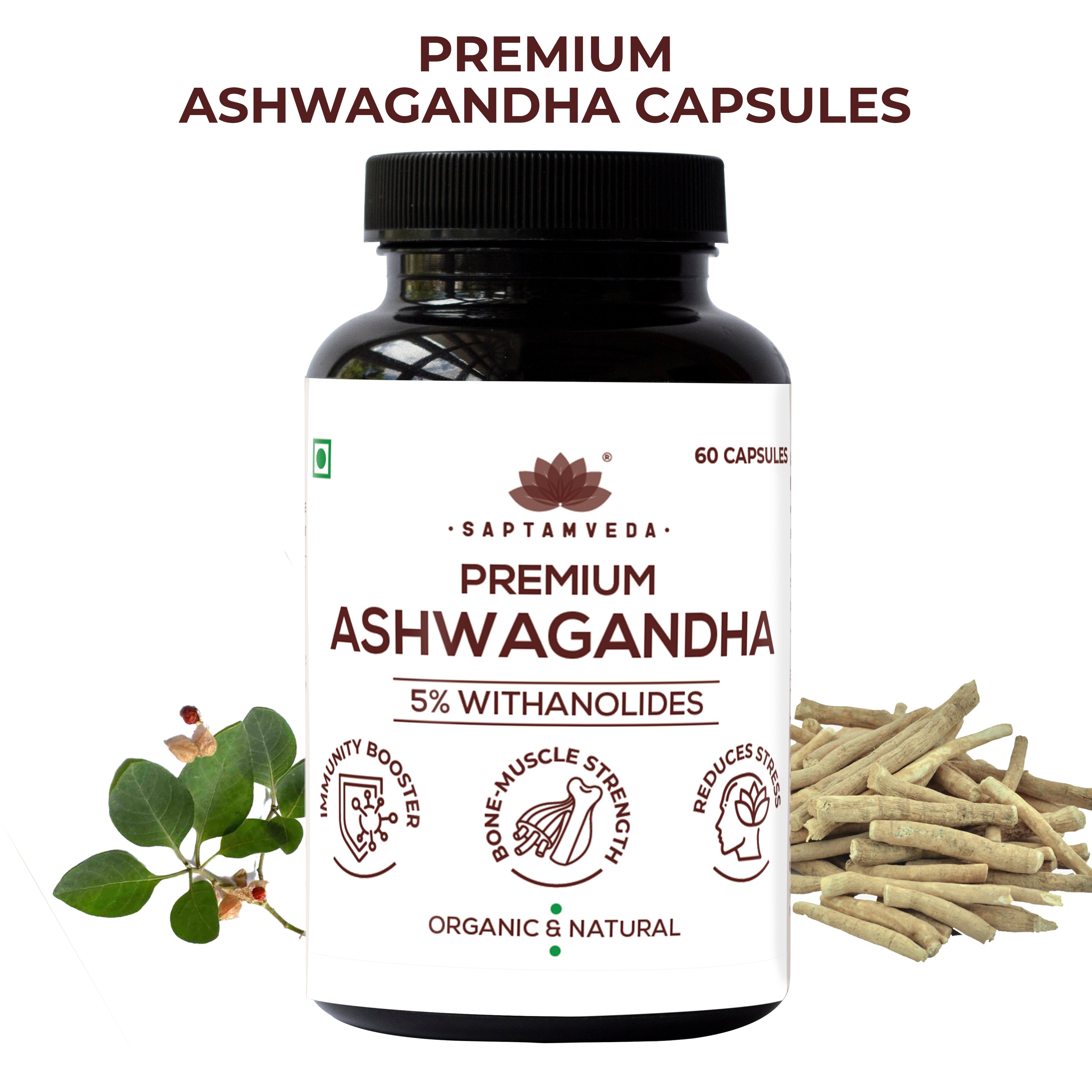Description
Ashwagandha Capsules are a potent herbal supplement, housing the exceptional benefits of the Ashwagandha root (Withania somnifera). These capsules are a concentrated source of several vital phytochemicals that have been revered in Ayurvedic medicine for over 3000 yea���� ����������������� �� Also known as 'Indian Ginseng' or 'Winter Cherry', Ashwagandha is famed for its stress-reducing, neuroprotective, and anti-inflammatory properties. Its adaptogenic nature helps the body maintain balance and adapt to various kinds of stress. Incorporating Ashwagandha capsules into your routine can contribute to increased energy, improved cognitive function, and overall enhanced well-being.
Common Name
The common names for this supplement include Ashwagandha, Indian Ginseng, and Winter Cherry.
Facts
- Ashwagandha is a small shrub that's native to India, Middle East, and parts of Africa.
- It belongs to the Solanaceae family, which also includes other prominent plants like tomatoes and potatoes.
- The plant has been an integral part of Ayurvedic and indigenous medicine for over 3000 yea���� ����������������� ��
Uses
- Stress Relief: As an adaptogen, Ashwagandha helps the body manage and adapt to stress.
- Cognitive Enhancement: It is used for improving memory, cognition, and relieving anxiety and depression.
- Energy Booster: Ashwagandha can also boost stamina, endurance, and overall energy levels.
Benefits
- Reduced Stress and Anxiety: Ashwagandha can lower cortisol levels and mitigate the symptoms of stress and anxiety.
- Enhanced Cognitive Function: It can enhance brain function, improve memory and concentration.
- Improved Strength and Stamina: Regular consumption can help boost stamina and increase muscle strength.
How to Use
Ashwagandha capsules are typically consumed with water or any other liquid of your choice.
Dosage
The recommended dosage of Ashwagandha capsules can vary, but it's generally suggested to take one to two capsules daily. Always follow the dosage instructions on the product packaging or consult with a healthcare provider.
Precautions
Ashwagandha is considered safe for most people when taken as recommended. However, pregnant or breastfeeding women, people with autoimmune diseases, and those on medication for thyroid disorders should consult their healthcare provider before use.
History
Ashwagandha has a rich history of use in Ayurvedic medicine, where it is considered a vital herb for its rejuvenating properties.
Etymology
The name 'Ashwagandha' is derived from Sanskrit words 'Ashva' meaning 'horse', and 'Gandha' meaning 'smell', referring to the strong horse-like odor of the fresh root.
Phytochemistry
Ashwagandha is rich in several beneficial compounds including alkaloids, steroidal lactones (withanolides and sitoindosides), saponins, and glycosides.
Recipe
While Ashwagandha Capsules are typically taken on their own with water, they can also be incorporated into a simple Ashwagandha Latte:
Ingredients:
- 1 cup of milk (any variety)
- 1 Ashwagandha capsule
- Sweetener of choice (optional)
Directions:
- Warm the milk in a small saucepan over medium heat.
- Open the Ashwagandha capsule and add the powder into the warm milk. Stir until dissolved.
- Add sweetener to taste, if desired.
- Pour into a mug and enjoy.



Comment